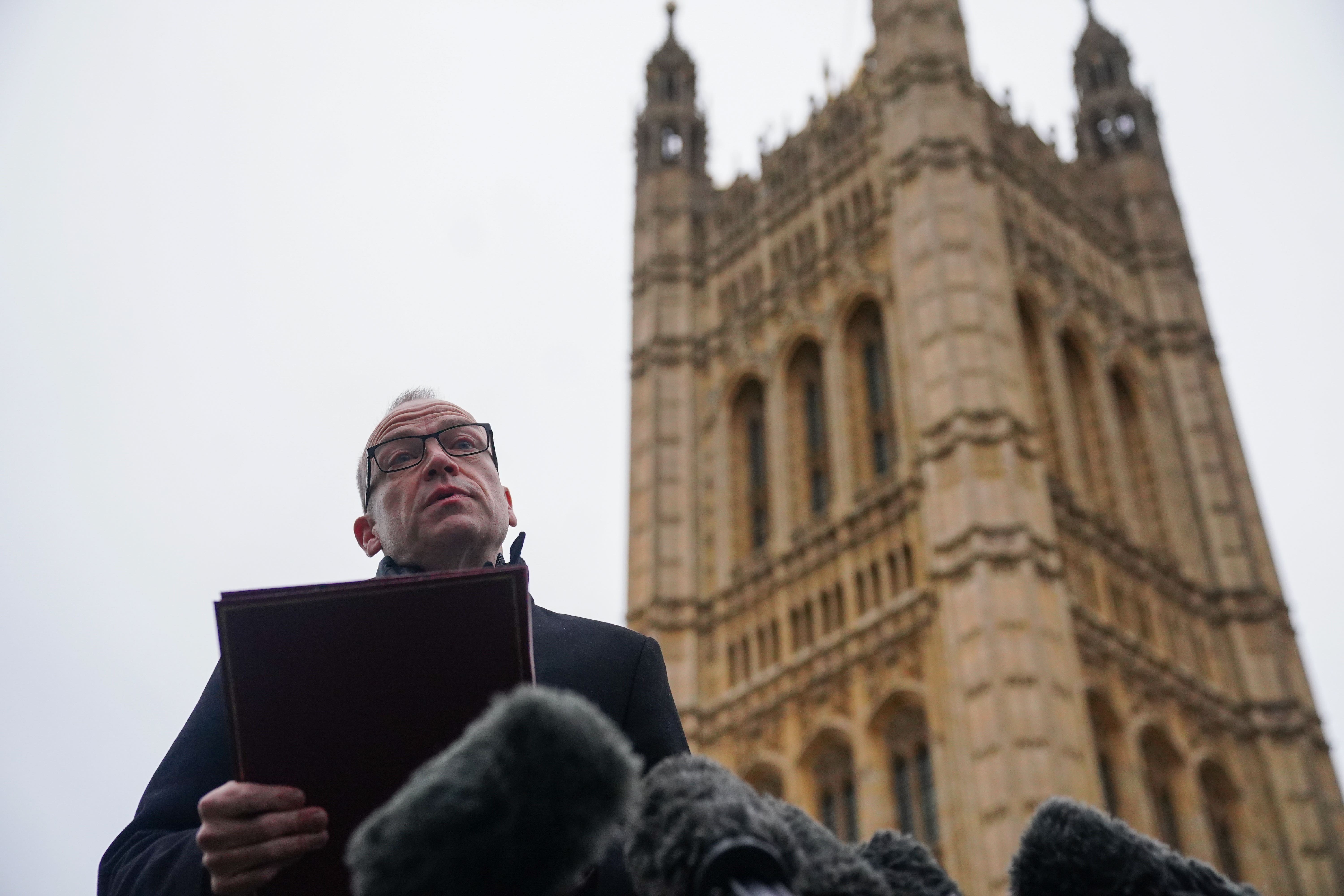Sinn Fein’s windy talk of a united Ireland must not wreck the new Ulster deal
Editorial: Two years on from collapsing the government, the DUP has reached an agreement that will restore the Northern Ireland Executive. The deal is proof that, even in an age of deep political fissures, a cross-party consensus can still prevail

There have been many historic days in the history of Northern Ireland, and not all of them memorable for the right reasons. The breakthrough deal that has re-established powersharing in the province is undoubtedly one of the better days, and that deserves to be celebrated.
As has been widely noted, much of the credit must redound personally to the patient diplomacy by the secretary of state for Northern Ireland, Chris Heaton-Harris. Historically, his role has been regarded in Westminster as a “hardship posting”, not least because of the ever-present threat of assassination.
Since Mr Heaton-Harris managed to broker a deal with the Democratic Unionist Party that will revive the Northern Ireland Assembly and Executive, he is more likely to be overcome by the heady fumes of love enveloping him from Sinn Fein. They are joined by the Labour Party, Irish nationalists, the SNP, and even some of the flintier – but realistic – leaders of political unionism.
At a time of sometimes hyper-partisan conflict over “culture wars”, it is reassuring that, despite the efforts of the Tory hard right, a cross-party consensus still prevails where Northern Ireland is concerned. That unity of purpose no doubt sustained Mr Heaton-Harris in his lonelier moments.
It is indeed a personal triumph of historic proportions for the rather unassuming Mr Heaton-Harris. He served as chief whip during the last chaotic days of the Johnson administration, and the political skills he showed during those challenging times have clearly been put to good use at Stormont. In any case, he has discharged his responsibilities with distinction.
Would that that could be said with the same force about some of the other figures involved. Sir Jeffrey Donaldson, leader of the DUP, is entitled to gratitude for manoeuvring most of his party back into the executive – but that does not mean he was right to collapse the institutions in the first place, two years ago.
Sir Jeffrey makes the claim that only by his party fighting for changes to the Brexit deal as it applied to the province via this boycott were the reforms secured. There may be something in that, but the people doing the “fighting” and making the sacrifices weren’t Sir Jeffrey and his DUP colleagues. It was the people of Northern Ireland who suffered declining public services for two years while the DUP were in effect on part-paid holiday.
The gains the DUP made may, in practice, turn out to be as marginal as unionist critics, such as the splenetic Sammy Wilson, say. Goods may well move more freely across the Irish Sea, and there will be some political changes to bolster formally the province’s place in the UK internal market. But the text of the Windsor Framework remains unaltered, and there will still be so-called green and red lanes for items moving from Great Britain to Northern Ireland in a way that obviously does not happen when they cross the border between England and Wales or England and Scotland.
What the DUP has been demanding for many months from the government and the EU has mostly not been delivered. The concessions are practical; focused on the implementation of rules and pragmatic solutions. They are also there thanks to the flexibility of the European Union and the prime minister’s gift for negotiation – so thanks to them too.
Moreover, it is at least possible that the latest changes could have been negotiated with less anger and disruption with the executive in place. There is more than one way to win a political argument, and arguing the case with London and Brussels while in government with a democratic mandate might well have proved no less effective than the DUP’s brutal, dangerous and miserable boycott of Northern Ireland’s democratic institutions.
Still, better late than never, and the DUP should themselves be cheered by the prospective solidifying of Northern Ireland’s place in the UK – though they seem disinclined to. They should certainly not be disquieted by windy talk from Sinn Fein about a reunited Ireland. The more Northern Ireland is established in its anomalous position as an integral part of the UK that is also inside the European single market, the more likely it is to prosper, and the less likely it would be that its inhabitants would want to return to the uncertainties of the last few years, and the risk of a slide back to violence. Northern Ireland is no less secure if the sacrifice of pure sovereignty is balanced by a cross-community agreement on the status quo.
Yes, there will be a Sinn Fein first minister, Michelle O’Neill, for the first time, which will upset the unionists most conscious of the power of symbols. But as deputy first minister, Sir Jeffrey is effectively a co-first minister.
Besides, Ms O’Neill will be operating the machinery of government in a part of the UK – a tacit but powerful and historic acceptance of the fact of partition, however unpalatable it is to her as a republican. The DUP should pocket their gains and move on. No turning back now, Sir Jeffrey.






Join our commenting forum
Join thought-provoking conversations, follow other Independent readers and see their replies
Comments